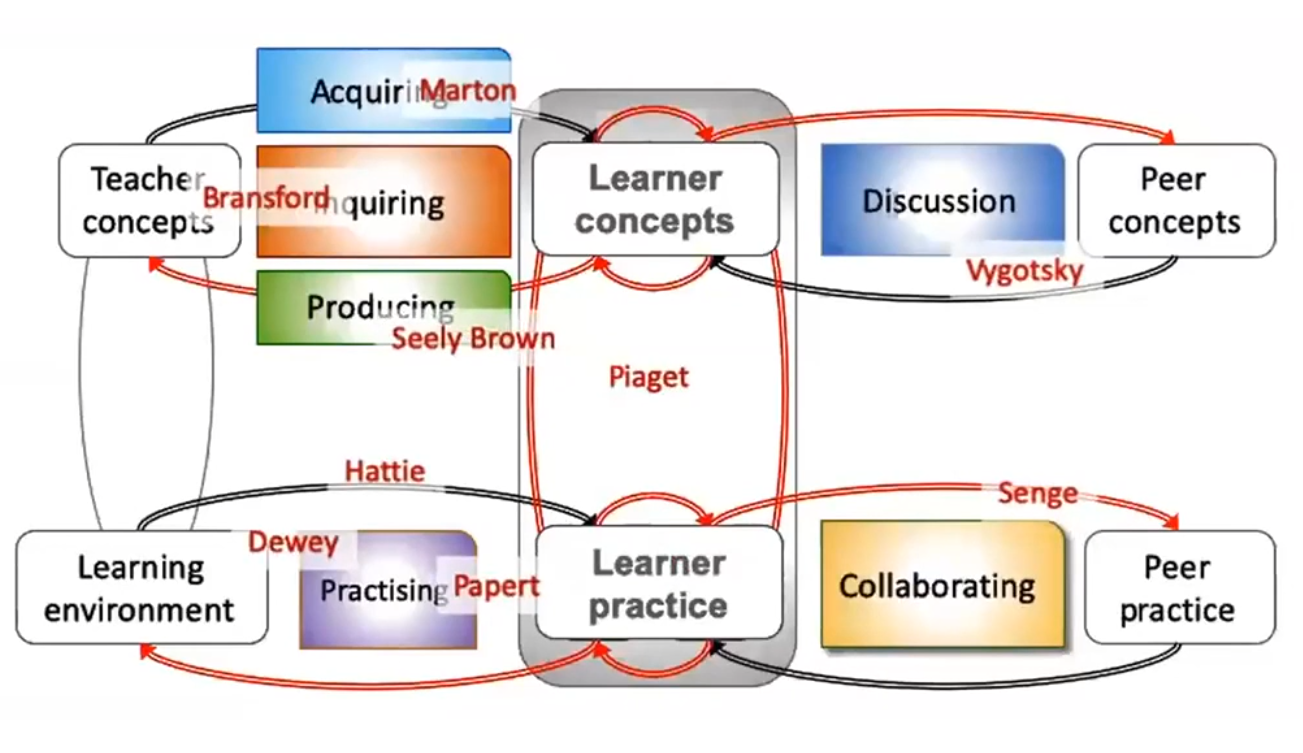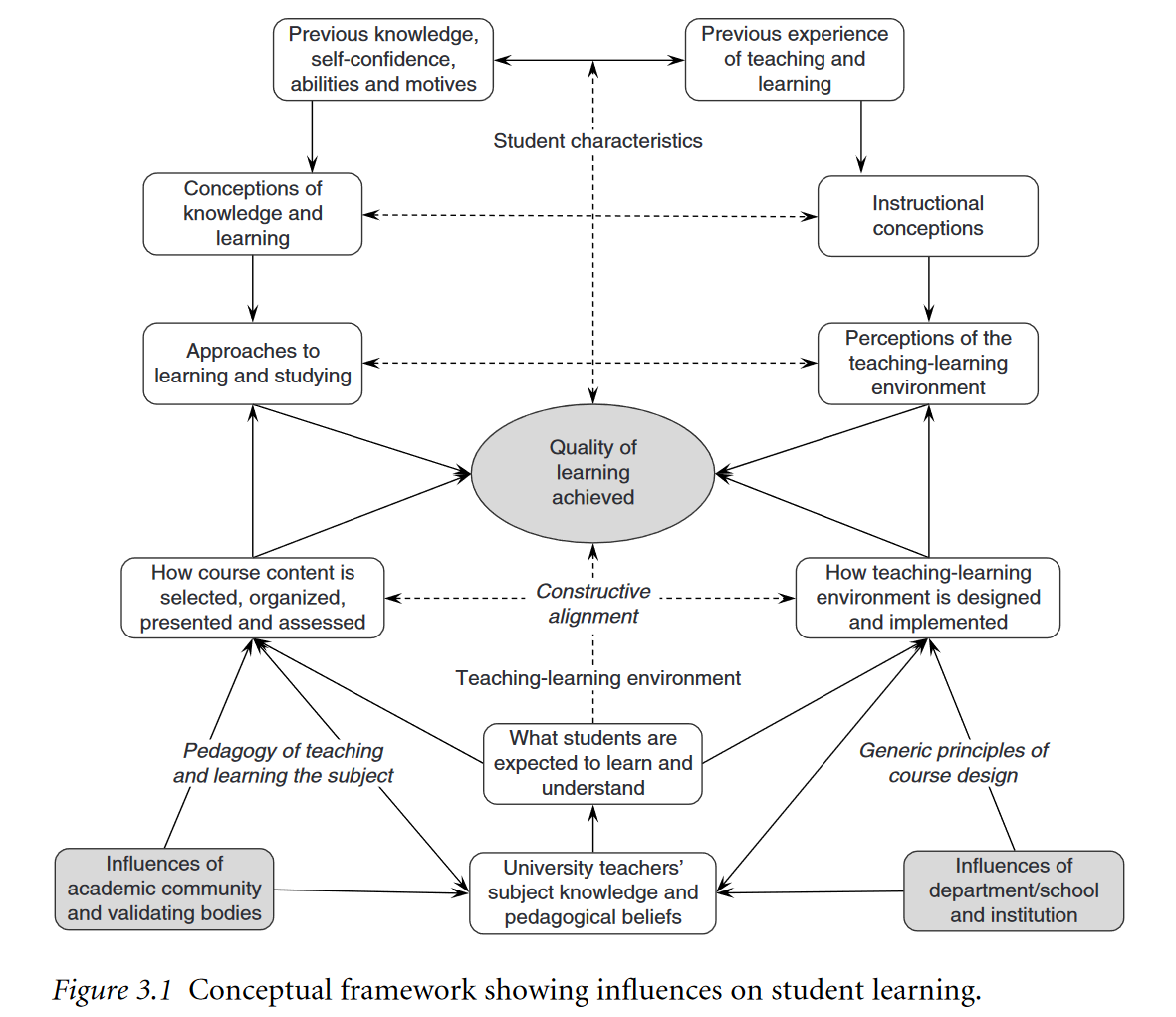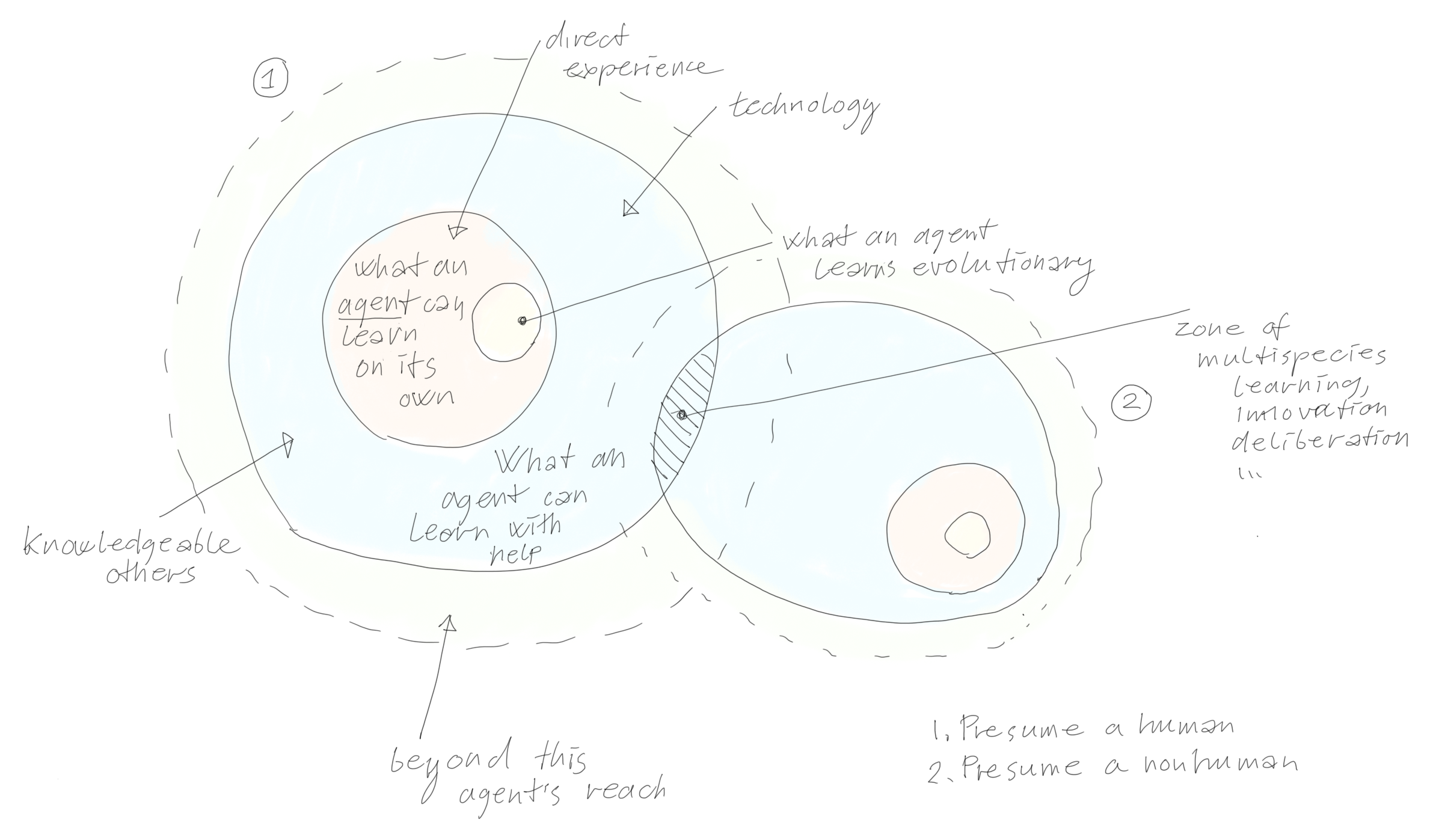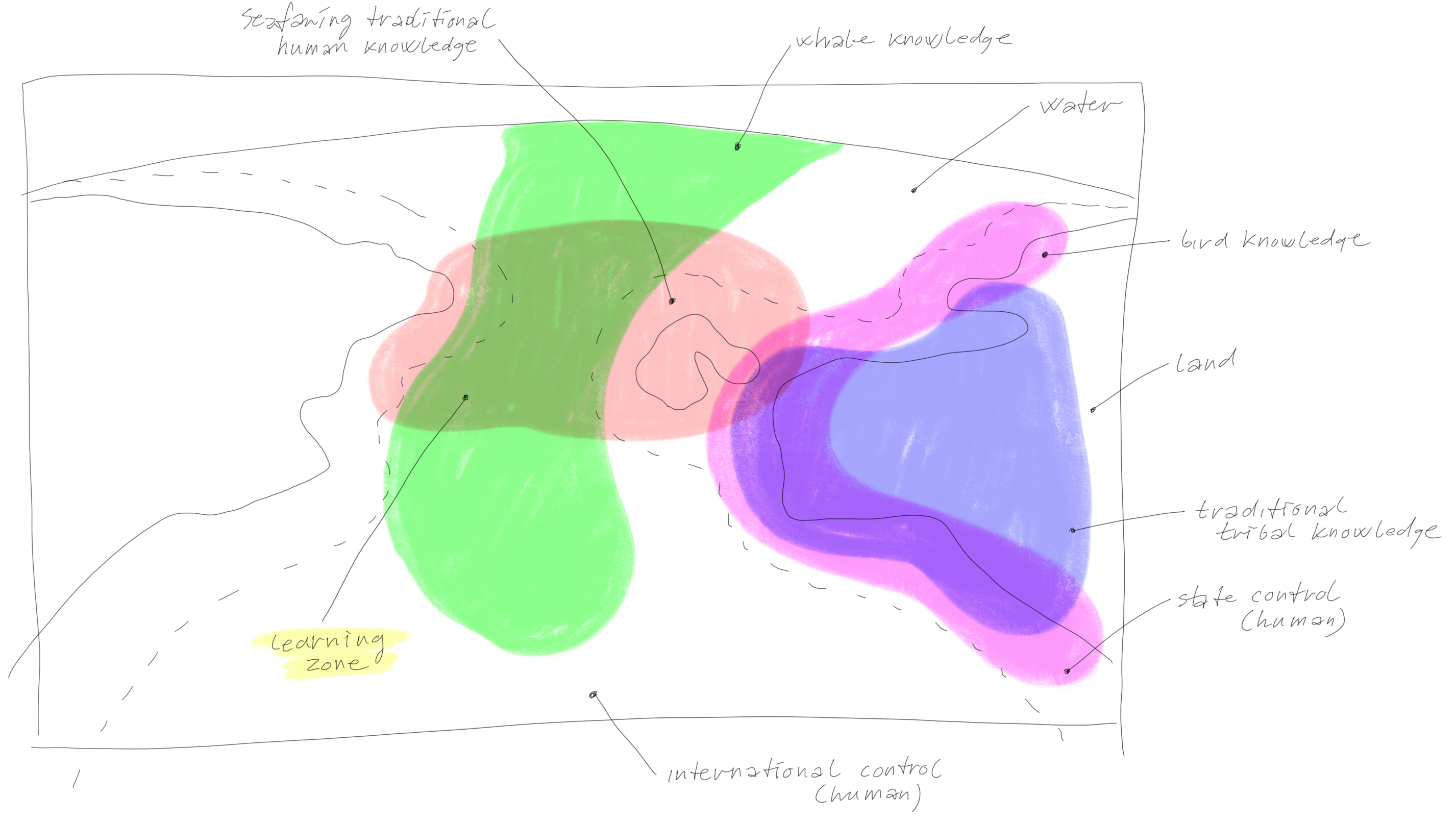Learning
This note is about the concept of learning. It is related to the domain of Teaching and Knowledge.
Definition
Tentative (SR): learning is entropy-resisting pattern formation. Formation here includes acquisition, retention, transmission.
Learning, capacity to change behaviour. Results from individual experiences. Achieves adjustments that are difficult to encode genetically.
Memory, capacity to retain learned information to influence future behaviour.
Wyatt, Tristram D. Animal Behaviour: A Very Short Introduction. Oxford: Oxford University Press, 2017.
In education, learning involve construction of meaning, cf. Techniques
In education:
Ambrose, Susan A., Michael W. Bridges, Michele DiPietro, Marsha C. Lovett, and Marie K. Norman. How Learning Works: Seven Research-Based Principles for Smart Teaching. San Francisco: John Wiley & Sons, 2010.
Learning is a process that leads to change, which occurs as a result of experience and increases the potential for improved performance and future learning.
Aspects:
1. Learning is a process, not a product. Only observable from products or performances. 2. Learning accumulates over time and results in a lasting change in knowledge, beliefs, behaviours, or attitudes. 3. Learning is not something done to learners, It is something learners themselves do through responses to experiences that can be conscious or unconscious.

Summary by Diana Laurillard

Laurillard, Diana. Teaching as a Design Science: Building Pedagogical Patterns for Learning and Technology. New York: Routledge, 2012.
How can this diagram be redrawn to include distributed and nonhuman learning?
Thoughts
Ignorance (or the continuation of the current state) is often more comfortable (or energetically prudent) than learning, because learning implies the work of changing.
Learning and teaching are forms of Violence. They are energetically and structurally expensive. They are risky.
Valuable learning is new to all life, then to humanity, then to human cultures, generations, groups and the least valuable learning is new to individual humans (or to self) when all the learner does is matching the tropes of existing group cultures. This learning can empower human cultures but also can causes harm due to its limited scope.
By contrast valuable learning is slow and addresses relationships, mutualistic or otherwise. This learning relates to justice through active inclusion of related agents.
Valuable learning accrues. If not, learning is an expensive indulgence. In many situations such accrual requires active (and innovative) support.
Any interpretation of reality is intrinsically violent. Cf. ontological violence. It is possible to avoid physical violence but some ontological violence is intrinsic to all knowledge.
Oksala, Johanna. Foucault, Politics, and Violence. Evanston: Northwestern University Press, 2012.
Science
By a serious cognitive neuroscientist:
Dehaene, Stanislas. How We Learn: Why Brains Learn Better Than Any Machine ... for Now. New York: Viking, 2020.
Learning in Living Systems
Gunawardena, Jeremy. ‘Learning Outside the Brain: Integrating Cognitive Science and Systems Biology’. Proceedings of the IEEE 110, no. 5 (2022): 590–612. https://doi.org/10/gqd36c.
More-than-Human Learning
Cf.

More-than-human mutual learning.
As an extension of Vygotsky's Zone of Proximal development and societal scaffolding. This diagram does not need to presume that an agent is an organism or an individual but for an example presumes a human and an animal. It could be a group of any kind, an organisation, an ecological community (need to consider the implications).
This learning can occur as exchanges of meanings, habits, etc. through chains or networks (birds see a cat and make a noise, dog hears the noise and barks because it knows a cat is around, humans hear the dog and the birds and know this too).
The others do not need to be more knowledgeable in general, they just might know different things.
Group members can have different levels of knowledge, ability, experience, etc.
Scaffolding and support are necessary for learning in human societies and this also applies to more-than-human collectives.
Vygotsky, Lev. Mind in Society: The Development of Higher Psychological Processes. Edited by Michael Cole, Vera John-Steiner, Sylvia Scribner, and Ellen Souberman. Cambridge: Harvard University Press, 1978.

Mapping of knowledge production and mutual learning.
These zones of learning can be regional. The need active maintenance and reproduction or re-learning. They are inherently collaborative but the flow of meaning can break even if it remains in potential.
The volume and resolution of this knowledge varies. Scientific, engineering, geometrically mapped knowledge of contemporary human societies further overlays this in a patchwork fashion.
It should be possible to produce volumetric maps of knowledge density to illustrate gap and opportunities. For example, human knowledge will diminish further away from the shores, with depth under the water and with height in the atmosphere.
Similarly, it should be possible to assess and map the continuity and multiplicity of the knowledge quilt, effectively measuring the degree and patterns of fragmentation.
Based on this, it should be possible to express and map a measure of cohesion.
Further, it should be possible to estimate and map rates of knowledge production and dissipation.
Such measures can be important to underpin the valuing of the planetary places and as a way to inform approaches to more-than-human political representation.
Questions:
- the total volume of available knowledge
- means of knowledge production
- patterns of knowledge-to-action transfer
- effects and benefits of knowledge
Sterelny, Kim. ‘The Evolution and Evolvability of Culture’. Mind & Language 21, no. 2 (2006): 137–65. https://doi.org/10/bv4c68.
Engagement
What forms of engagement are possible with nonhuman beings?
With humans:
- Behavioural: participation
- Emotional: positive and negative
- Cognitive: effort to comprehend ideas or skills
With nonhuman beings
-
behavioural
-
cultural
-
genetic
-
co-living
-
metabolic exchange
-
labour exchange
-
...
Backlinks